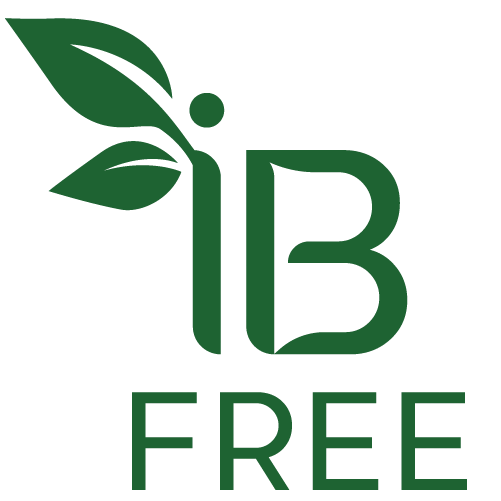Managing IBS as a Long-Distance Runner
Long-distance running demands stamina, discipline, and smart fueling—but for runners with Irritable Bowel Syndrome (IBS), it also requires careful digestive management. The wrong pre-run meal or sports drink can turn a tempo into a triage. The good news: with a few strategic adjustments, you can train (and race) confidently.
(If FODMAPs are new terrain, start with our primer: Understanding FODMAPs. For everyday meal structure, see A Diet for IBS Relief. Pair it with Mindful Movement & Vigorous Exercise for a resilient training base.)
IBS vs. Runner’s GI Distress—What’s the Difference?
Both involve the gut; causes and timelines differ.
Runner’s GI distress is usually exercise-induced—linked to intensity, dehydration, hypertonic/high-fructose fuels, jostling, and heat—and often resolves once the effort ends. Reviews note changes in splanchnic blood flow and permeability as key mechanisms (Aliment Pharmacol Ther; Eur J Appl Physiol).
IBS is a chronic condition with symptoms (pain, bloating, diarrhea/constipation) that can flare anytime, often tied to food triggers, stress, and visceral hypersensitivity. In athletes, a short-term low-FODMAP approach has reduced exercise-related GI symptoms in free-living conditions (J Int Soc Sports Nutr).
Takeaway: treat acute, exercise-specific triggers and build a daily IBS-friendly base.
IBS-Friendly Foods for Runners (Low FODMAP, No Dairy)
Your aim is simple fuel with minimal friction.
Good starting points
Low-FODMAP fruits: firm bananas, strawberries, kiwi, citrus. (Firm/just-ripe bananas test low FODMAP; very ripe trend high due to changing sugars.) (Monash: Bananas re-tested)
Lean proteins: grilled chicken, turkey, firm tofu.
Gluten-free grains/starches: rice, quinoa, oats, buckwheat; potatoes (peel if skins bother you).
Cooked veg: carrots, peeled zucchini in small portions, spinach—keep fiber gentle.
Dairy-free milks: unsweetened oat or rice milk (check labels for added sweeteners).
Steer clear of common triggers: onions, garlic, apples, stone fruits, wheat, crucifers (e.g., broccoli), beans/legumes, and standard dairy. Save heavy fiber, legumes, and “new” foods for non-training days. (See why certain staples misbehave: Garlic, Onion, Milk, Wheat Bread & Pizza.)
Safer Snack Ideas for Before or During Long Runs
Rice cakes with mashed firm banana (low-FODMAP, quick carbs). (Monash: Bananas)
Gluten-free toast or pita with a thin layer of jam (simple carbs, low fiber).
Plain oatmeal with a little brown sugar or maple syrup (avoid honey).
Boiled potato cubes (salted; portable and predictable).
Rice or cornmeal porridge you make yourself (control osmolality and ingredients).
Skip commercial bars with dried fruit, nuts, inulin/chicory, or dairy-based powders; they’re frequent culprits.
Hydration Tips—Especially for IBS-D
Hydration mistakes are a common driver of mid-run distress.
Use balanced electrolytes. Sodium + potassium + glucose improve fluid absorption; start hydrating hours before the session and keep sipping after (ACSM Position Stand).
Avoid hypertonic/high-fructose drinks (or overly concentrated mixes). Hyperosmolar beverages are more likely to pull water into the gut and cause cramping/diarrhea; products using glucose or glucose–fructose at appropriate concentrations are better tolerated (Nutrients review).
Sip, don’t chug. Small, steady intakes are kinder to the gut.
Consider salt capsules for long, hot runs if you’re a salty sweater or prone to IBS-D dehydration (test in training) (ACSM Position Stand).
For strategy that blends movement with nervous-system down-regulation, see Mindful Movement & Vigorous Exercise.
Training Rules of Thumb
Meal timing: finish larger meals 2–3 hours pre-run; use small, low-fiber top-ups 30–60 minutes out.
Rehearse everything. No new foods, drinks, or gels on race day.
Track patterns. A simple log (food, fluids, pace, temperature, symptoms) reveals your personal red lines.
Downregulate stress. Brief nasal-breathing drills or a 5-minute body scan can reduce pre-run urgency and cramping; autonomic factors matter in both runner’s gut and IBS (Aliment Pharmacol Ther).
The Bottom Line
IBS doesn’t have to bench your training. Build a low-FODMAP-leaning base, practice simple fuels that agree with you, and get hydration right. With repetition—same breakfast, same bottle mix, same timing—your gut learns the routine, and the routine steadies the gut.
